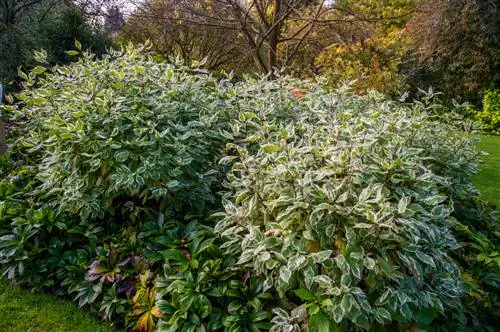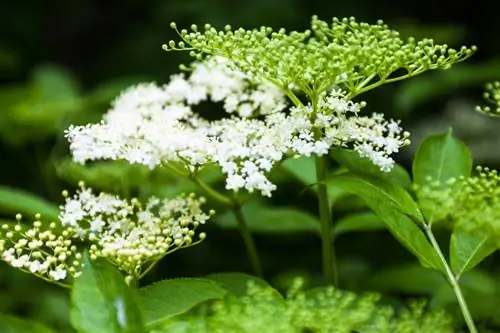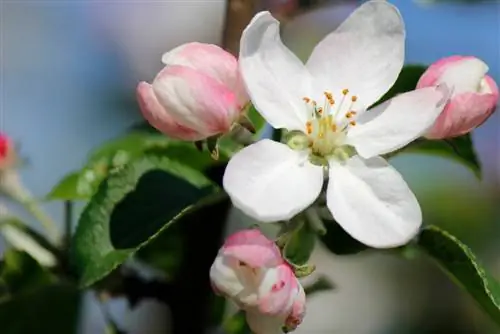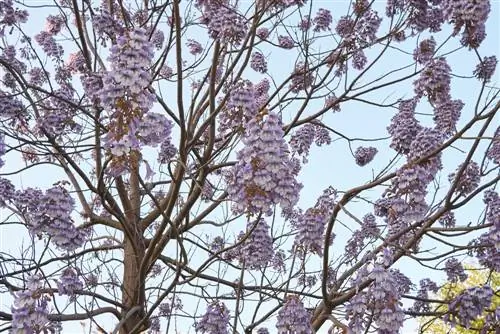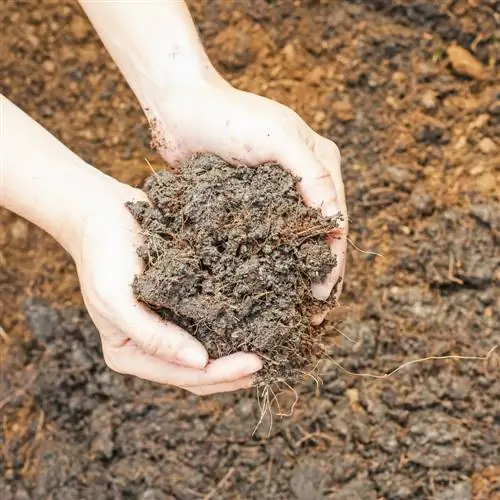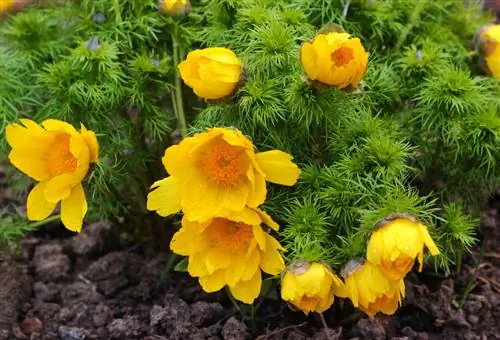- Author admin leonars@hobbygardeners.com.
- Public 2023-12-16 16:46.
- Last modified 2025-06-01 06:02.
Basically, anyone who has loamy soil in their garden can count themselves lucky: depending on its composition, it is an extremely good reservoir for water and nutrients. However, this property can also be a disadvantage if the soil is particularly dense. This must be thoroughly loosened before planting and, if necessary, improved with compost and sand.
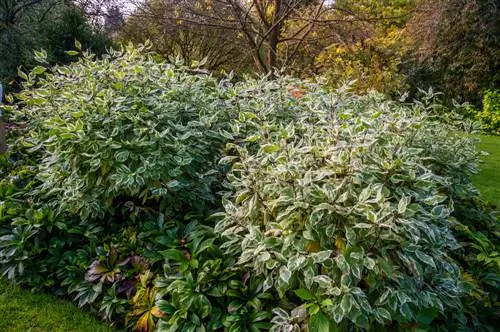
Which trees are suitable for clay soil?
Trees that are well suited to clay soils include Western arborvitae, American sweetgum, medlar, tulip tree, cornelian cherry, red Japanese maple, sour tree, tulip magnolia, Himalayan birch, crabapple, quaking aspen, sycamore maple, white willow, winter lime and quince. Make sure to loosen the soil before planting and improve it with compost and sand if necessary.
Clay soils are maintenance-intensive
Many plants feel comfortable in clay soil as long as it is not too compacted. The heavier and denser the soil, the greater the risk of waterlogging - and the harder it is for the tree to root itself in it and filter out nutrients and moisture. Thorough, deep mechanical loosening and improvement with compost and sand are essential, not only before planting. Artificial drainage helps to prevent waterlogging.
Trees for loamy soils
Many popular garden trees thrive in nutrient-rich, loamy soil. The following overview lists the most beautiful species.
| Type of tree | Latin name | Location | Growth rate | Special features |
|---|---|---|---|---|
| Occidental Tree of Life | Thuja occidentalis | Sun to partial shade | slow, 20 - 30 cm / year | large selection of varieties |
| American sweetgum | Liquidambar styraciflua | Sun | slow, 5 - 10 cm / year | bright red autumn colors |
| Medlar | Mespilus germanica | Sun to partial shade | 20 - 35 cm / year | rare fruit tree |
| Tulip tree | Liriodendron tulipifera | full sunny | 30 - 70 cm / year | unusual flowers and fruits |
| Cornelian cherry | Cornus mas | Sun to shade | slow, 10 - 30 cm / year | edible fruits |
| Red Japanese Maple | Acer palmatum | Sun | very slowly, 5 - 10 cm / year | gorgeous ornamental tree |
| Sour tree | Oxydendrum arboreum | Sun to partial shade | quite quickly | striking autumn colors |
| Tulip Magnolia | Magnolia soulangiana | Sun to partial shade | slow, 20 - 30 cm / year | magical spring blossom |
| Himalayan Birch | Betula utilis var. jacquemontii | Sun to partial shade | 20 - 30 cm / year | unusually white trunk |
| Crabapple | Malus | Sun to partial shade | 30 - 50 cm / year | pretty flower and fruit decorations |
| Aspen / Aspen | Populus tremula | Sun to partial shade | 40 - 80 cm / year | very uncomplicated |
| Sycamore maple | Acer pseudoplatanus | Sun to partial shade | 40 - 80 cm / year | does not tolerate waterlogging |
| Silver Willow | Salix alba | Sun to partial shade | fast, 60 - 150 cm / year | very tolerant to moisture |
| Winterlinde | Tilia cordata | Sun to partial shade | 25 - 50 cm / year | valuable bee pasture |
| Quince | Cydonia | Sun to partial shade | 30 - 50 cm / year | very frugal, even for rough locations |
Tip
Some clay soils are chalky, others are more acidic. Before planting, also check the pH value of the soil, as the requirements of different tree species differ here too.

